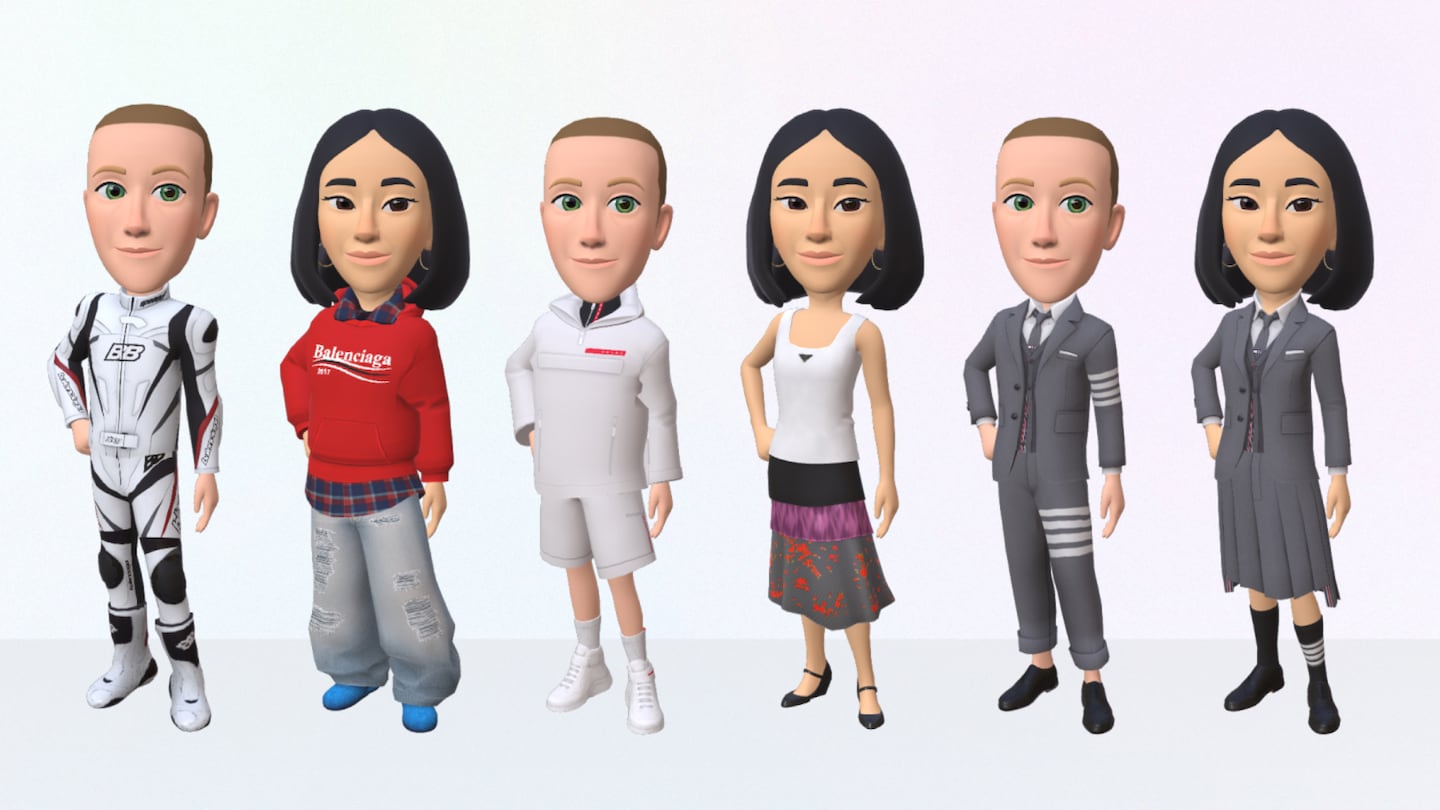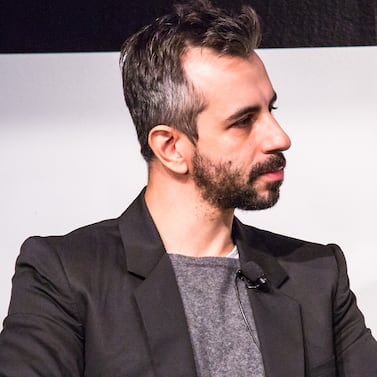
The Business of Fashion
Agenda-setting intelligence, analysis and advice for the global fashion community.

Agenda-setting intelligence, analysis and advice for the global fashion community.

Meta is launching an online store to sell fashion for its virtual avatars, and industry heavyweights Balenciaga, Prada and Thom Browne will be the first brands to join.
In a live announcement on Instagram Friday, founder and chief executive Mark Zuckerberg joined Eva Chen, Meta’s vice president of fashion and shopping partnerships, to share the news and offer a glimpse of what Meta’s new avatar fashion will look like. Chen held up images to the camera showing Zuckerberg’s cartoonish Meta avatar in different looks, including a Balenciaga motorcycle suit, a white anorak and shorts from Prada’s Linea Rossa line and one of Thom Browne’s signature grey suits.
The virtual designs will be available for use on Instagram, Facebook and Messenger. Meta plans to expand them to its virtual-reality platform and to introduce additional brands soon. The Avatar Store will begin rolling out next week in the US, Canada, Mexico and Thailand, Meta said in a press release.
Meta has allowed users to create their own avatars since 2019 and has steadily rolled out updates and new features like the 3D avatars it introduced earlier this year. It currently offers free outfits for users to style their digital selves. The next step, Zuckerberg said today, will be a marketplace Meta is building for them to buy items from a range of designers.
ADVERTISEMENT
”That way, all different kinds of creators over time are going to be able to participate and design clothing and sell it,” he said during the livestream on Instagram.
How much the items will cost has yet to be revealed.
Zuckerberg has emphasised that fashion will be an important part of the immersive fusion of the physical and digital worlds it’s trying to build. Recently he travelled to Milan to drum up support among Italy’s fashion leaders.
So far, fashion companies seem open to the advances.
”Web3 and Meta are bringing unprecedented opportunities for Balenciaga, our audience, and our products, opening up new territories for luxury,” Balenciaga CEO Cédric Charbit said in a statement.
Their mix of technical expertise and digital artistry has put 3D creators, game designers and NFT experts in high demand among fashion brands as they venture further into virtual territories.
There’s a land rush happening in virtual spaces, where developers are grabbing up real estate to build immersive, digital shopping districts they’re pitching as the future of e-commerce.
While announcing Facebook’s rebrand as Meta, Mark Zuckerberg offered his vision of the metaverse, and how we’ll dress in it.

Marc Bain is Technology Correspondent at The Business of Fashion. He is based in New York and drives BoF’s coverage of technology and innovation, from start-ups to Big Tech.
Zero10 offers digital solutions through AR mirrors, leveraged in-store and in window displays, to brands like Tommy Hilfiger and Coach. Co-founder and CEO George Yashin discusses the latest advancements in AR and how fashion companies can leverage the technology to boost consumer experiences via retail touchpoints and brand experiences.
Four years ago, when the Trump administration threatened to ban TikTok in the US, its Chinese parent company ByteDance Ltd. worked out a preliminary deal to sell the short video app’s business. Not this time.
Brands are using them for design tasks, in their marketing, on their e-commerce sites and in augmented-reality experiences such as virtual try-on, with more applications still emerging.
Brands including LVMH’s Fred, TAG Heuer and Prada, whose lab-grown diamond supplier Snow speaks for the first time, have all unveiled products with man-made stones as they look to technology for new creative possibilities.